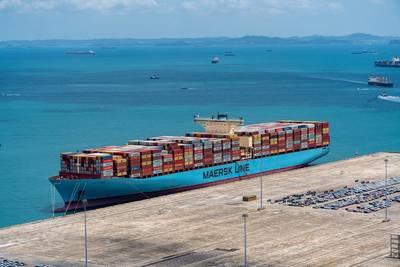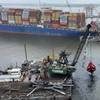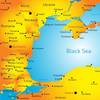Maersk's Profits Boosted by Red Sea Disruption
Shipping group Maersk raised its full-year earnings and market demand forecasts on Thursday, partly due to disruptions to Red Sea trading routes, but also said prospects for the fourth quarter were uncertain.
The Danish group, seen as a barometer of world trade, said it now expected global container market volumes to increase 4-6% this year, up from its previous forecast of growth at the upper end of a 2.5-4% range.
It added, however, that there was a lack of clarity around supply and demand in the fourth quarter of the year.
Maersk's share price initially rose on the news, before reversing to trade down 0.5% at 1252 GMT.
The company also forecast its underlying earnings before interest, tax, depreciation and amortisation (EBITDA) would total $9-11 billion this year, versus its previous estimate of $7-9 billion.
Attacks on vessels in the Red Sea by Iran-aligned Houthi militants have disrupted a shipping route vital to east-west trade, with prolonged re-routing of shipments pushing freight rates higher and causing congestion in Asian and European ports.
Maersk expects this situation to last at least until the end of the year, it said, while adding that uncertainty remained.
"Trading conditions remain subject to higher than normal volatility given the unpredictability of the Red Sea situation and the lack of clarity of supply and demand in Q4".
This is the third time Maersk has raised its 2024 guidance since it was first provided in February.
Preliminary second-quarter revenue came in at $12.8 billion, below the $13.0 billion expected by analysts in a poll compiled by LSEG, while provisional EBITDA fell to $2.1 billion from $2.9 billion in the same period a year ago.
The company is scheduled to publish full quarterly earnings on Aug. 7.
(Reuters - Reporting by Stine Jacobsen; Additional reporting by Boleslaw Lasocki; Editing by Terje Solsvik and Mark Potter)














